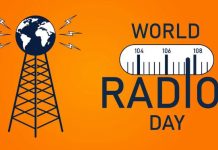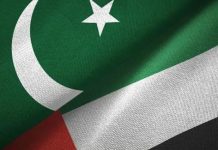NEW YORK – The UN rights chief on Monday raised the issue of political rights in Russia and China when she opened the 47th session of the Human Rights Council, alluding to the imprisonment of political figure Alexey Navalny and a “chilling impact” on civic space in Hong Kong.
UN High Commissioner for Human Rights Michelle Bachelet said she was opening the June 21-July 13 UN Rights Council on its 15th anniversary, which is “sadly a time of grave setbacks in human rights.”
She said extreme poverty, inequalities, and injustices are rising as she raised concerns about diminished political and civic space in Russia and China, two members of the UN Security Council.
“Democratic and civic space is being eroded. Navigating a clear way out of the complex COVID-19 crisis and towards an inclusive, green, sustainable, and resilient future will be the work of this generation of world leaders-or their downfall.”
Bachelet said she is dismayed by the recent measures that undermine people’s right to express critical views and their ability to take part in the Russian parliamentary elections scheduled in September.
FOUNDATION LED BY NAVALNY
She noted that earlier in June, following closed hearings, a Moscow court ruled that the Anti-Corruption Foundation, led by the imprisoned opposition figure Navalny, was an “extremist organization.”
“It also ruled that the associated Citizens’ Rights Protection Foundation, and Navalny’s nationwide network of political offices, are ‘extremist,’ based on vaguely defined allegations of attempting to change the foundations of constitutional order,” said Bachelet.
She observed that earlier this year, Russia passed a law prohibiting people involved in outlawed “extremist organizations” from running in any election.
The UN rights chief called on Russia to uphold civil and political rights and said legislation restricting the freedoms of expression, peaceful assembly, and association should align with international human rights standards.
“I further urge the authorities to end the arbitrary practice of labeling ordinary individuals, journalists, and non-governmental organizations as ‘extremists,’ ‘foreign agents’ or ‘undesirable organizations’.”
CHINA AND NATIONAL SECURITY LAW
Regarding China, Bachelet said a year had passed since the adoption of the new national security law in the Hong Kong Special Administrative Region, “on which my office has expressed serious concerns.”
“We have been closely monitoring its application and the chilling impact it has had on the civic and democratic space, as well as independent media,” said the UN rights chief.
Since July 1, 2020, 107 people have been arrested under the national security law in Hong Kong, and 57 have been formally charged, with the first case coming to trial later this week.
“This will be an important test of independence for Hong Kong’s judiciary in its willingness to uphold Hong Kong’s obligations under the International Covenant on Civil and Political Rights, in accordance with the Basic Law,” said Bachelet.
Separately, the rights chief said she continues discussing with China a visit, including meaningful access to the Xinjiang Uyghur Autonomous Region, “particularly as reports of serious human rights violations continue to emerge.”

















